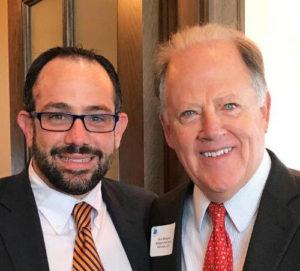Bribery – Corporate Policy or local Necessity?

Translating Corporate Policy to Operational Practice
Bribery of public officials is unlawful in the United States. But bribery in different forms is common practice in many parts of the world and not uncommon in the US. While I was a management consultant with Arthur D. Little, a client had purchased a company, one of whose subsidiaries was a firm selling voting machines. The client asked ADL to do a survey of the voting machine business to help decide what to do with the company. The ADL team interviewed people in the business and knowledgeable about the business – on the phone – and were told that selling voting machines involved bribing local officials. The client did not want to be in a business where bribery is a normal business practice and sold the subsidiary. Bribery – Williams Advisory Partners
There are lots of reasons why people expect or demand extra compensation for doing the job they are already paid to do. Because they can – is one answer. Public employees are underpaid in many parts of the world and getting extra income from local businesses and citizens is common.
Jordi de Llano is Deputy Chief of the Economic Crime Unit for the US Department of Justice in Boston. Mr. Llano was the keynote speaker for a Directors Roundtable program I hosted recently in Boston. Among Mr. Llano’s responsibilities is prosecution of crimes under the Foreign Corrupt Practices Act (FCPA). These are cases where a US company is accused of paying – directly or indirectly – foreign officials for favorable treatment in a business transaction. The compensation could be cash, payment of a child’s college tuition, contribution to a favorite charity or lunches every day in the company cafeteria. The transaction could be selling airplanes or speeding up a building permit application.
A colleague recently shared his experience helping an arts center in New York. A major dance festival had invited a prominent dance company from Nigeria to participate in the event. Visas were required from the US Embassy in Lagos. The line outside the Embassy is filled with people holding places in line. To get into the Embassy sooner than several weeks, a visa applicant must buy one of the places for about $350. Without that payment by the US company, the dance company could not have gotten visas in time for the NY program.
Was the payment for a place in line at the US Embassy a violation of FCPA? Perhaps not because the line position holders were probably not government employees. But this is an example of local practices. Employees of state owned airlines, telecom, energy, mining, and lots of other companies are all government employees subject to FCPA regulations. Essentially everyone in China is a government employee.
A company’s board of directors is responsible for assuring legal compliance including prohibitions of bribery. The CEO is responsible for implementing policies and procedures making sure all employees and agents of the company obey the law. Getting company staff to fully follow often ambiguous legal requirements is hard to do.
When the Justice Department evaluates a potential FCPA case, their evaluation of the culpability of the corporation is instructive for compliance issues beyond FCPA. Rarely are the payments made under an explicit corporate directive to bribe key decision makers to guarantee the sale of an oil lease. More commonly, local managers are incentivized to win the sale or complete the construction project on time. They work hard to make that happen and understand what is needed for the local system to work.
A well crafted corporate policy against bribery sitting on the general counsel’s office shelf will not earn many credits when the Justice Department is considering bribery charges against the company and its officers and board. Are policies and operating procedures in place and visible to all staff who could be involved in bribery? Has a risk assessment been done to identify offices or activities where illegal activities are most likely to happen – agents of the company, poor performance offices, high turnover offices, cultures where bribery is expected? Has staff training been done in the context of the local culture?
Potential FCPA violations are a focus of the Justice Department. But your company makes many purchase decisions, and you want to have procedures in place to limit bribery of your decision makers. Purchasing agents and division managers make purchase decisions on behalf of the company. Some form of extra inducement for making a favorable decision is often available. Do you have practices in place – procedures, approval policies, and training – to assure the decisions are made in the best interests of your company?
Criminal charges brought against your company for FCPA violations can include charges against officers and board members. Jail time is a possibility. These cases are expensive to defend and damage the brand value of the company. The challenge is to translate policy statements against bribery into operating practices across many offices. The staff most likely to violate the anti-bribery policies are also directed to promote the company’s interests and may live in a culture with a different understanding of business practices. Nothing is easy!